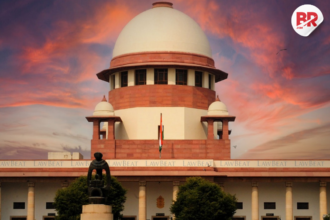
When your boss calls on a Sunday, and it’s not even a crisis—welcome to Punjab’s new “always-on” governance.
In a new directive issued by the Punjab government, all state officials are now required to stay on-call after hours—even during weekends and holidays.
The order, signed by the special secretary (personnel), aims to boost administrative responsiveness by ensuring officials are reachable anytime via mobile phone.

What Does This Mean for Government Staff?
Imagine just wrapping up dinner with your family when your phone buzzes—again. It’s not an emergency, but it is work. That’s now the new normal for Punjab’s government employees.
This shift affects thousands of officials who must keep their phones charged, loud, and within reach—regardless of where they are or what they’re doing. From birthday parties to hospital visits, work can now call anytime. Literally.
Why This Directive Was Issued
According to the government, the intention is to ensure smooth governance. Officials being unavailable during crucial moments—like during policy decisions, natural disasters, or urgent administrative action—can stall the entire system.
Being on-call after hours, the logic goes, will close communication gaps and help deliver public services more efficiently. In short, it’s about making the government more agile and accountable.
And sure, nobody wants red tape to block relief during a flood. But that’s not the everyday case, is it?
Also Read Workplace Niceness: Why Being Too Sweet Can Sour Trust at the Office
The Employee Backlash
Civil servants aren’t thrilled. Many say this directive erodes the already thin line between work and personal life. The biggest concern? Burnout.
Endless calls, notifications, and expectations to respond—even during personal time—can cause chronic stress. That means less time to decompress, sleep well, or simply be present with loved ones.
As one official put it, “You’re not working 24/7. But you might get called 24/7—and that’s enough to keep you on edge.”
Not the First, But Still Worrying
While “always-on” culture is common in startups and private sectors, applying it to bureaucracy is tricky. Public sector roles often come with fixed hours and compensation tied to schedules—not endless flexibility.
According to a Times of India report, experts warn this could set a dangerous precedent, especially if other states follow suit without safeguards in place.
Finding the Middle Ground
The goal of improving response time isn’t bad. But the method? That’s debatable. Here are a few ways Punjab can soften the blow:
- Define “urgent”: Not every file is an emergency. Officials should be contacted only for clearly urgent matters.
- Use rosters: Rotate on-call duties so that responsibility is shared fairly.
- Offer compensation: If people are working after hours, they deserve overtime pay or time off.
- Set boundaries: Leaders must respect off-hours unless absolutely necessary.
Even doctors get time off—and they literally save lives.
Also Read Work Less, Reproduce More? Tokyo’s Bold Four-Day Workweek Experiment
The Real Challenge: Trust and Communication
At the heart of this issue is trust. Can a government run efficiently without micromanaging its workforce into exhaustion? Can it respect employees’ time and still serve the public well?
The answer lies in balance. Policies like this must come with empathy, clarity, and mutual respect. Otherwise, we risk turning dedicated officials into resentful workers—and that never ends well for governance.
Also Read China Work Hour Reforms: Why Big Firms Are Now Cutting Overtime












